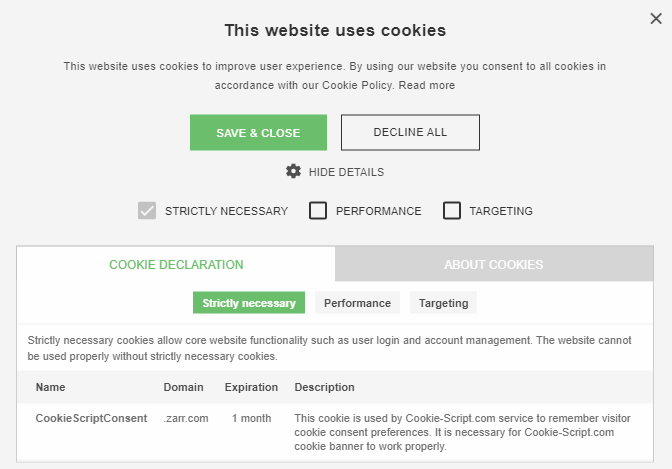Back in 2011 the EU adopted a directive aimed at giving people the right to refuse cookies that reduce their online privacy. The UK then as a member of the EU wrote this into their "Privacy and Electronic Communications Regulations"
Initially it was very difficult for companies to find a solution for this as without a legal precidence behind it (i.e. the first lawsuit against someone deemed not to comply) legal firms were unwilling to stand behind solutions. The majority of websites adopted a "we use cookies, if you want to remove or block them then you can do it via your browser" approach which was used (and is still used) widely for many years as illustrated below. This is know as "Implied consent"


The rational behind this is that almost all websites need some form of cookies to be able to operate - without them the website simply does not work so they have to exist even just to show the message.
2021 Updated Cookie Law Guidance
New guidance in 2021 has clarified what should be done under best practice.
Cookies are now broken down into the following categories:
- Strictly Necessary
- Performance
- Targeting
Quite simply websites can now automatically 'install' the ones they need to work, then until the visitor Explicitly enabled the additional cookies they are not operational.
This enablement must be done with a combination of clearly setting out what cookies are used and why (a cookie audit), with tick boxes that cannot be pre-selected.
An example of this is below:


Zarr offers Cookie compliance solutions for any website which complies with all current UK and EU guidance and aims to update with any law changes. You can contact our development team here if you want any advice or to discuss a solution for your website.
What are Website Cookies?
Almost all websites use cookies which are little data files to store information in peoples’ web browsers as a form of short term memory. Some websites contain hundreds of them.
They are stored in your browser and enable a site to ‘remember’ little bits of information between pages or visits. They are widely used to make the web experience more personal, which is generally seen as a positive thing. However some cookies collect data across many websites, creating ‘behavioural profiles’ of people. These profiles can then be used to decide what content or adverts to show you.
This use of cookies for targeting in particular is what the law was designed to highlight. By requiring websites to inform and obtain consent from visitors it aims to give web users more control over their online privacy.